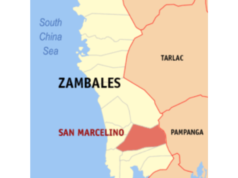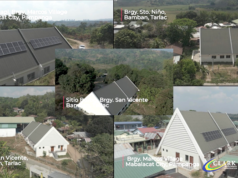It may take them sometime before they can hear again the normal sounds of new stocks of these animals on their residential compounds.
“At least 90 days,” according to Regional Director Roy Abaya of the Department of Agriculture in Region III. “That’s the time needed in order to determine that their places are already free of the bird flu virus,” he added.
The villages are San Roque in San Isidro town and Imbunia in the town of Jaen. These villages, including areas within its one kilometer radius, were subjected to the culling of feathered animals due to the bird fl u infection.
They were the two places that suffered the fate of San Luis, Pampanga which was the ground zero of the bird flu virus.
The culling operations in these two Nueva Ecija villages had been completed. What remains is monitoring to determine that these places and those within their one-kilometer environs have been completely cleansed of the virus.
In Barangay Imbunia, more than 100,300 egg-laying quails raised in backyards and more than 70,576 chickens in San Roque were culled.
The exact number of other feathered animals, like native chicken, ducks, fighting cocks, and pigeons, are still being inventoried. The inventory will serve as basis for the assistance to be given to their respective owners by the DA and the provincial government of Nueva Ecija.
Each chicken, duck and fighting cocks killed will be “compensated” by the DA at P80 each and the quails at P10 each. The eggs destroyed will also be paid.
Nueva Ecija Gov. Czarina Umali said financial assistance would be given to the owners of the culled animals for them to re-start their business or their raising of the animals for domestic consumption.
Earlier, Agriculture Secretary Emmanuel Piñol announced that a loan assistance for the farmers and entrepreneurs whose animals were culled would be made available.
The loan would be P20,000 with an accompanying grant of P5,000, he said. The loan, with no collateral and no interest. is payable in two years, will be made available through the Agricultural Credit Policy Council under its survival and recovery package.
Last Monday, Pres. Rodrigo Duterte handed a P5.516 check to Manuel Ortiz Luis as payment for the chickens culled in his poultry farm in San Roque. Mary Grace Castro and Magdalena Nagum were paid P209,000 and P149,870, respectively, for their culled quails.
The President motored to the City of San Fernando to declare that the bird fl u virus in the three towns in Pampanga and Nueva Ecija had been wiped out and said that poultry products are safe for consumption.
Abaya said that stringent steps would be taken after the culling operation. Some soldiers and the members of the Avian Influenza Task Force will be making steps to ensure that the two Nueva Ecija villages and the environs within their one-kilometer radius are already safe for the bird flu virus.
“Then sentinel chicken or quails will be placed after one month in the affected areas to determine if the virus had been wiped out,” Abaya said.
DA sources said that in keeping with the international protocol, it is only after 90 days after an area has been declared safe that the farmers and entrepreneurs will be allowed to start raising new stocks of feathered animals.
Based on that protocol, it will still take some more weeks after the introduction of new stocks shall the residents hear again the crowing of roosters or cocks, crackling of layer chickens and chirping of the domesticated quails in their backyards or neighborhood.




